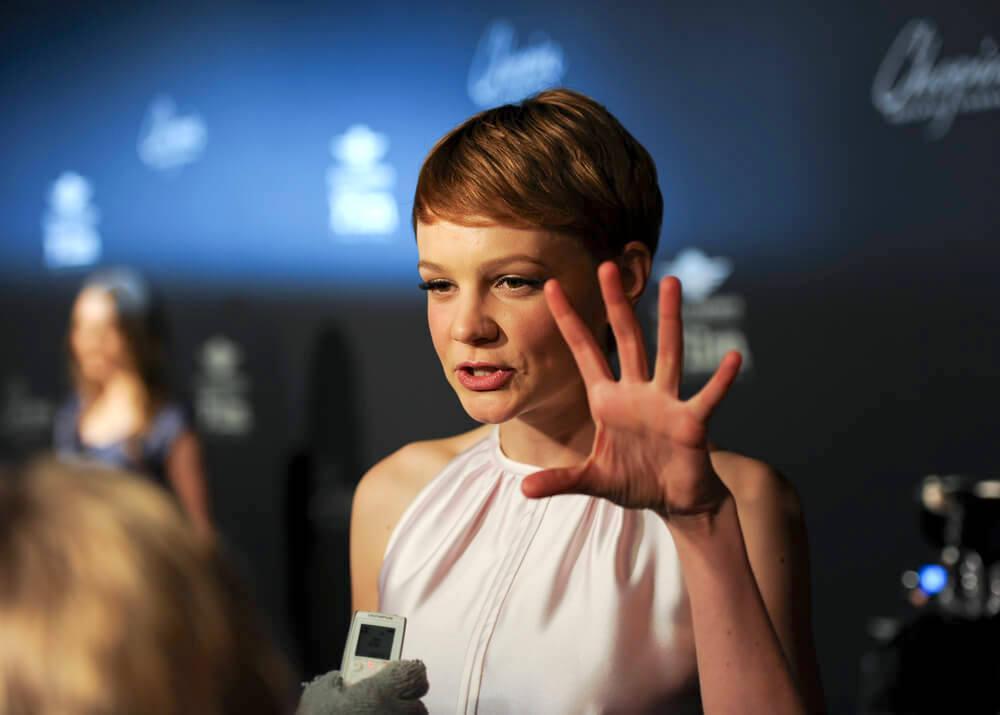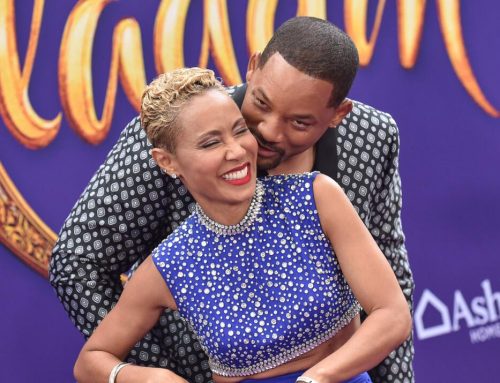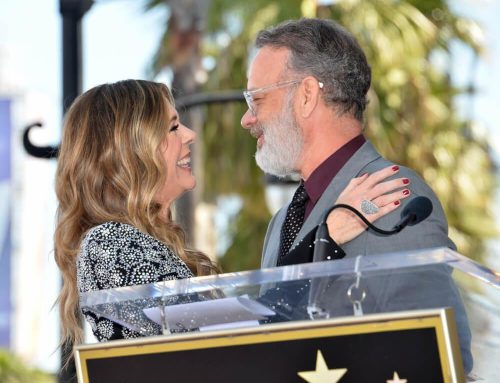What do we really know about Carey Mulligan? To many of us, she is the petite young lady of vaguely European descent with the pixie cut and unexpectedly raspy voice who’s first garnered national attention for her cinematic skills and grace.
To others still, she is Daisy Buchanan, the 1920’s flirtatious flapper and socialite and obsession of the Great Jay Gatsby. Some know her as Kitty Bennett, the most beautiful and carefree of the Bennett daughters from Jane Austen’s “Pride and Prejudice in 1813. ” She’s fought the “Walking Dead” in the post Zombie apocalypse, and the oppressive patriarchy of society as a “Suffragette” in the 21st century UK.
What we really do know about Mulligan is that she is an actress, which means she is all of the above and none. She is who she wants the audience to see her as at any given moment, and the reason she can do that so well is because of her exceptional acting skills. So let us take a moment to celebrate and get to know Carey Mulligan by taking a retrospective of some of her finest movies.
Wall Street: Money Never Sleeps
So how does a nice English girl like Carey Mulligan come to find herself up against the Bulls and Bears in New York City’s Wall Street area? In this case, it happens when her dad, Gordon Gekko (Michael Douglas), fraudster and convicted felon finds himself back there fresh from prison, promoting his new book, “Is Greed Good?” FYI: “Money Never Sleeps” is a sequel. The original documented the crime for which Gekko was in for.
Winnie (Carey) runs a small non-profit website and is also dating Jacob Moore, top priority trader at Keller Zabel Investments and it looks like Gekko is back to his old tricks. When Moore and Gekko join forces to avenge the death of Jacob’s boss, Louis Zabel, it seems like some things are better left alone.
Pride and Prejudice
The story of “Pride and Prejudice” certainly doesn’t need to be retold, yet in this movie, Mulligan has managed to contribute to retelling it quite nicely.
If you haven’t had the pleasure of taking literature in high school, you may not know that “Pride and Prejudice” is the story the Bennett family, the matriarch of which seems to have nothing better to do than dedicate her time to planning how she’s going to marry off her five daughters. That’s mostly because if she doesn’t do so successfully before her husband kicks it, she’s going to lose the estate to her cousin.
Things get interesting when a fellow named Mr. Darcy shows his affection for Elizabeth, the eldest daughter by coldly rebuffing her a dinner reception. What ensues is a complex version of boy meets girl incorporating other sisters and suitors into the plot with comic relief from Mr. and Mrs. Bennet and Lady Catherine de Bourgh, played by the always compelling Dame Judy Dench.
Carey made her feature debut as most carefree daughter Catherine “Kitty” Benet with a roving eye for men in the militia. She makes an honest woman of herself in the end when she marries a clergyman. A period piece suited perfectly for Mulligan, “Pride and Prejudice” was only a small taste of what this petite actress had in store.
The Great Gatsby
If you’d seen the movie “The Great Gatsby” without having known it was first a literature classic, you might well say it was written with Carrie Mulligan in mind. She not only looks the part of Daisy Buchanan, but she also plays her to the T. Just one glance at Ms. Mulligan in her overload of pearls and carefully curled flapper “ do” will take you right back to that famous scene in West Egg where Daisy breaks into tears over the beauty of Gatsby’s shirt collection.
Carey plays her role as the woman who crushes the dreams of naïve Nick Carraway flawlessly. She’s playful enough to break Nick’s heart without realizing it but cruel enough not to care. Watch this one for its incredible visuals if for no other reason. It’s absolutely stunning.
Shame
There usually comes a point in every actresses life where she really “goes there”- where she takes a role so daring and raw that it sparks uncomfortable conversations and has the censors raising the ratings to avoid controversy. In the movie “Shame”, Mulligan goes there. Shame’s scenes reflecting sexual addiction resulted in a rating of NC-17 in the United States.
The movie stars Michael Fassbender, as Brandon Sullivan, New York executive, long term bachelor, and sex addict who spends most of his days with prostitutes masturbates in his free time and often views pornography at work.
Mulligan plays the not so innocent little Sister, Sissy, a lounge singer with her own taste for sexual adventure and a somewhat shady background of her own. When she jumps into bed (her brother’s, nonetheless) with Brandon’s boss David, he notices self-inflicted wounds on her arms.
Things get darker from there. Brandon’s sexual addiction spirals out of control in front of Sissy’s face. In the end, he struggles to save her, only to find that he can’t even save himself.
Mudbound
Not one to keep from getting her hands dirty, Carey Mulligan finds herself in the trenches of post-World War II rural Mississippi in “Mudbound.”
The film focuses on two WWII vets, one black and one white, both dealing with PTSD and racism. Jaimie Macallan is the white son of a racist farm owner whose outer charms and good looks belie his inner demons. Ronsel Jackson is the eldest son of the family that works on the Macallan farm and finds freedom from racism overseas in Germany. When World War II breaks out both men go to war, and the lines are blurred between servant and master, questions are raised about whether or not anyone really wins or loses when hatred is involved.
Known for its critical acclaim, “ Mudbound” may best have been described when Peter Travers, writing for Rolling Stone said the following: “The director and her cinematographer Rachel Morrison do wonders with the elements that batter the people of every race and social class in the Delta. But it’s the storm raging inside these characters that rivet our attention and makes Mudbound a film that grabs you and won’t let you go.”
Inside Llewlyn Davis
When you see Jim (Justin Timberlake) and Jean Berkeley (Mulligan) you may well be reminded of Fred Armisen and Kristen Wig playing folk singers Garth and Kat on Saturday Night Live. However, on Saturday Night Live, there is no Llewyn Davis, and when Llewyn Davis is around comedy has a strange way of turning deadly serious.
“Inside Llewyn Davis” takes place in the middle of winter in 1961. He is fresh off the breakup of his Timlin and Davis folk music collaboration which earned him a modicum of success and is trying to pull together a solo career out of the well-cooled ashes. His album “Inside Llewyn Davis” is not selling and to top it off, he’s homeless, which often brings him to Jean and Jim’s doorstep, the couple who he has trouble showing his appreciation to, especially when they fail to recognize him as the true musician that he is. His possessions are also continuing to grow, the latest being an orange cat, which may just the one the detached Mr. Davis needs to help him reattach.
Suffragette
If you’ve heard any real stories about the Suffragettes in the early 1900s in the UK, you’ll know those women were some tough mothers and daughters. Emily Wilding Davis, for example, was jailed multiple times for her “right to vote” militant actions, including her tendency to break windows, set fire to post boxes and even spend the occasional evening hiding overnight in the Parliament. Did we mention she was killed by a stampede of King George V’s horses? Not such a pretty sight.
If you’ve seen “Suffragette” with Carey Mulligan, you’ve seen some of the imagined versions of those stories: some fairly disturbing ones among them. Milligan plays Maud Watts, a 24-year-old laundry worker whose run-in with a suffragette protest after work one day awakens her to the very real need for women’s suffrage. Her life changes dramatically as she ever increasingly embraces radicalism, becoming a pariah to her own husband, friends, and family.
Maud eventually ends up hooking up with Emily Davis herself and witnessing her infamous sacrifice. The film ends by stating that the women were given the right to vote in 1918, rights over their children in 1925, and the same voting rights as men in 1928. Is it a triumph or a tragedy is one just necessary to bring about the other?
Drive
Vroom Vroom! Driving into theatres in 2011,” Drive” is the American action drama that shows what Mulligan can do on high speed. The film stars Ryan Gosling as bad boy race car driver by day, getaway driver by night, Driver (Ryan Gosling). He’s got eyes for his neighbor Irene, (Mulligan) who lives with her son, Benicio. When Irene’s ex-con debt-ridden husband, Standard, shows up again he and Driver find they have more than their taste for Irene in common and attempt to pull off what turns out to be a botched attempt at a multimillion-dollar heist that threatens the lives of those around them.
The film has many of the elements of pulp fiction and has been cited as both extremely violent and extremely stylish. It takes its inspiration from everything from the Grimms’ Fairy Tales to Risky Business. Driver is the classic antihero wanting to protect what is good (Irene and Benicio) while destroying what he conceives as bad.
One of the film’s more poignant scene shows Driver kissing Irene tenderly immediately before stomping a man’s head in. This has been referred to as the couple’s “goodbye kiss,” the defining part of the movie in which Irene sees Driver’s darker side. It is this juxtaposition between light and darkness that “drives” this movie.”
An Education
“An Education” was the movie in which most of Hollywood received its first formal education on Carey Mulligan. After her film debut in “Pride and Prejudice,” “An Education,’ was the film in which Mulligan made her breakthrough performance as Jenny Mellor, a young girl alternately confused exhilarated and repulsed by her reactions to the advances of an older man.
The film stars Mulligan as a bright 16-year- old school girl with lofty goals of attending Oxford University. She meets the more mature David Goldman when he pulls up in his fancy car and voices concern about her cello getting wet as she stands in the rain waiting for a bus. The relationship seems as If it has a future when David proposes a date with Jenny to attend a concert and dinner with his friends and she agrees.
Of course, things get awkward when it’s time to meet the parents, especially since it seems unclear what David’s intentions toward their daughter are. However, with a bit of convincing from lenient mom, Marjorie, the two give their blessings to a trip in which David proposes to take Jenny to Oxford, where she can meet his old teacher, Clive Lewis, author of “The Lion, the Witch, and the Wardrobe.” Soon it seems the family may just be as susceptible to Mr, Goldman’s charms as Jenny herself is.
It all falls apart when Jenny discovers the real truth about Mr. Goldman and his interests in her family on her seventeenth birthday. Luckily, Goldman goes back to the hole he came from and is never seen again, keeping damage control to a minimum on all sided. Jenny despairs but is eventually able to resume her studies at Oxford the following year to continue her education in school, life, and love.






Leave A Comment